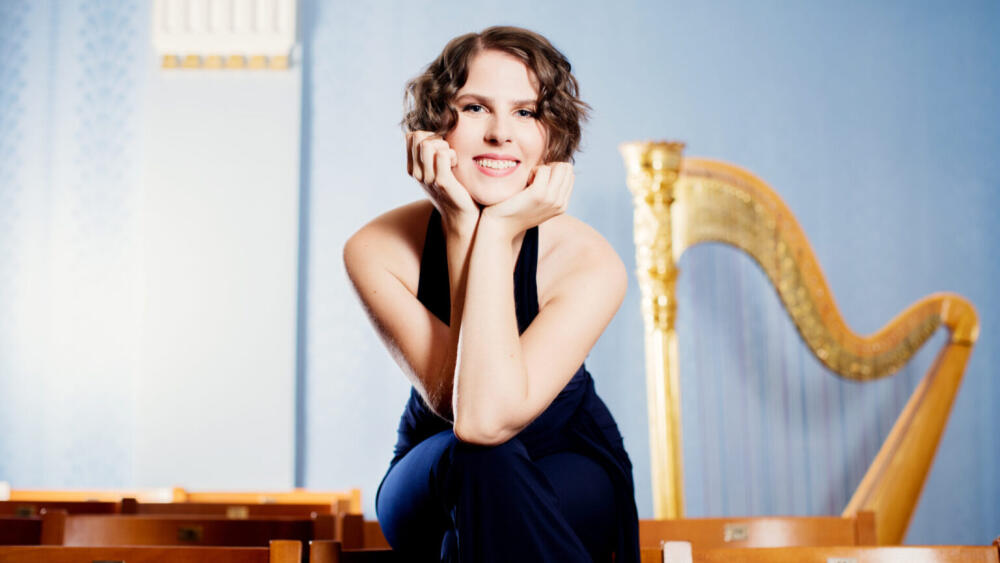
Elisabeth Plank: In Žilina I will present a musical portrait of my hometown Vienna
“I believe as a musician, I am the translator, or transmitter between composer and audience,” the...
30. marca 2025
“I believe as a musician, I am the translator, or transmitter between composer and audience,” the harpist Elisabeth Plank says in an interview for our online magazine.
I was really surprised when a professional harp player starts her CV with a sentence: “Harps are normally confined to ringing out at the end of an opera as the heavens open up. Otherwise, the instrument is considered a musty old salon music prop, with a high potential for kitschy excess”. It's funny and I must admit you have courage. Do you want to introduce the world of the harp in a completely different way, not the traditional way?
That is certainly my goal! I want people to see the harp as a solo instrument in its own right, with interesting repertorie and heritage, but also ready for the 21st century. I want audiences to be open to discover something about the harp, they might not have known before and maybe change their ideas about it.
What are your innovations? What is your way of presenting the harp in a modern way?
I am always just trying to present my vision; if it is innovative, I don’t dare to say.
I strongly believe, because the harp is -unfortunately – still rarely presented on concert stages as a solo instrument, we still need to introduce the harp properly. That means, we need our concert programs to explore the worlds of sound the harp is capable of. And mostly this is done better by original compositions, even if they are not written by famous composers, or if our repertoire differs in it’s focus from e.g. piano repertoire. And this, I believe, is the crucial point: even sometimes we harpists subconsciously compare the harp to piano in our heads because the piano is so omnipresent. So even if I myself add transcriptions, I usually try not to use transcriptions of piano music, rather pieces with more instruments or even orchestral; because this shows better all the colours the harp has to offer.
So I believe, we need to embrace the harp’s heritage with all its flaws and beauty, we need to know where we come from in order to know where we are going.
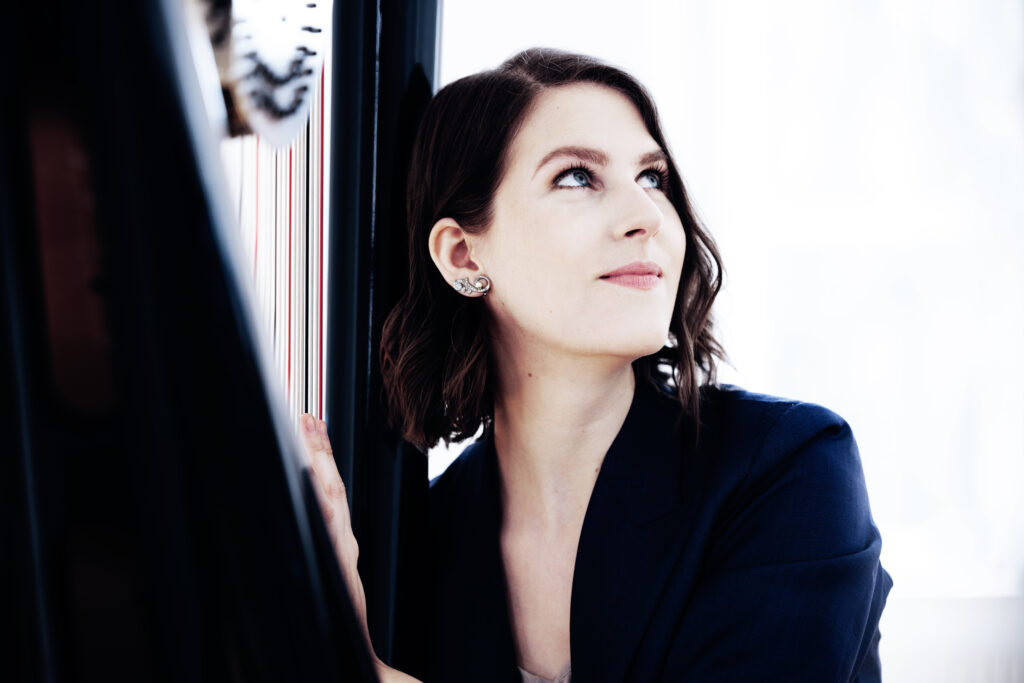
You discover forgotten repertoire, put history in modern contexts and give contemporary music a stage. Is this a way of communicating with a young audience?
Maybe yes? But for me it is just a way to address all kinds of audiences.
I don’t want to play the same few pieces all my life, I want to dig for musical treasure and also I believe as musicians, we need to work closely with composers to shape the future of our instrument.
And how can these innovations be accepted by an established audience that sees the harp as just a colorful addition to the orchestra? For example, at the end of an opera as the heavens open up or when Rusalka is coming at the stage…
Because in my program I like to mix styles, I think it shows exactly that! In the same program there might be an opera fantasy (because that is just a key part of our 19th century repertoire), but the next piece maybe is a contemporary composition. And you can hear both: the same DNA, but also discover a completely different side of the instrument. And that helps you to understand it better, even before you had not much of an exposure to the harp.
I've listened to some contemporary compositions in your interpretation. Even though many of them are rhythmically demanding and tonally "broken", it is the poetics of the harp that adds to their beauty. Do you think the harp is a musical instrument that can make contemporary music accessible so that it also has a bit of beautiful aesthetics and poetry in it?
Maybe the sound of the harp makes it more accessible, yes. It is after all one of the oldest instruments of humanity and maybe this subconsciously resonates within all of us?
Another aspect that makes any music very accessible on the harp is just that you can see where the sound is coming from, this adds to the fascination. So people can see in real time how I pluck the string and immediately hear the sound. And especially with contemporary music that maybe even has some extended playing techniques: you can see everything I am doing.
And in a piano recital, you just see someone hacking excitedly into a black box and sound comes out.
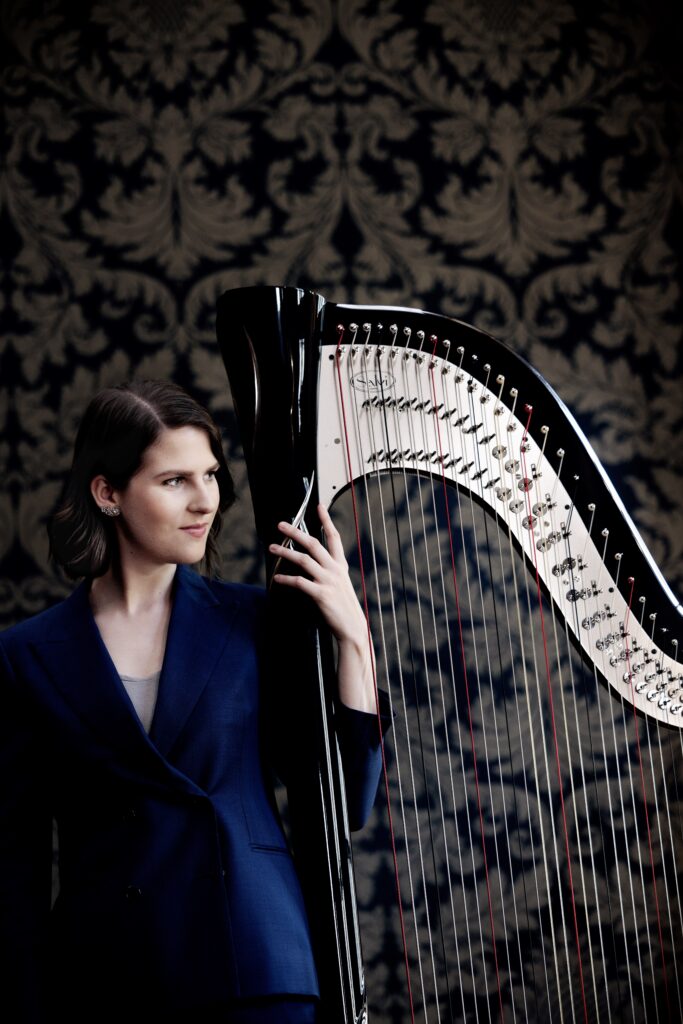
To the previous question, it is necessary to add that the harp can also be unusually dramatic. You can feel it, for example, in Arabesque by the Israeli composer Ami Maayani. Of course, the notes contain a pregnant rhythm and dynamics, but there is also something more in the interpretation, an extra-musical content. Do you create these stories?
Yes! I believe as a musician, I am the translator, or transmitter between composer and audience. And if musicians don’t interpret, we maybe even lose our right of existence? Of course it is our first duty to stay true to the text and recite the composer’s message as purely as possible, but we all have different experience and life stories and all of this shapes how we play and pieces sound different every time I play it, even every day, because I am not the same person that I was five minutes ago.
And there are other, more simple reasons -using Maayani as an example: when I studied his piece “Maqamat” I of course studied also the concept of maqams that is behind it, I listened to original music and tried to understand the Middle Eastern instrumentarium. and I played it for years. And then I had a concert in Jerusalem and the chance to see the city as well.
And only then you understand. All the architecture and ornaments, you experience hustle and bustle of the city. And this, I am trying to transmit in my performances. I want to take people to the loud bazar, or to the impressive city walls.
You have performed in renowned concert halls and festivals around the world - such as Musikverein Wien, Wiener Konzerthaus, Harpa Reykjavík, Konzerthaus Berlin, Grafenegg, Dubai Opera as well as a lot of international festivals. Any memorable concert? Or a place, where people can listen to contemporary music with understanding (and do not expect opening heaven in an opera)?
I think all of them are memorable! I might not always remember the exact year, but all of my concerts leave a strong imprint in my memory and heart. I think part of the reason why I enjoy being a musician is that, no matter how demanding our life becomes, every concert gives something back to me! Maybe the venue is fantastic, or maybe there is a special story to it, maybe the audience is incredibly warm… or maybe something incredibly crazy has happened before, and looking back you can only wonder how you managed to play that concert. The stories I could tell! (laughing)
And all of this gives back to the mosaic where I draw my inspiration from in all my concerts.
You prove with every concert and album that the harp can be an independent instrument. Why did you choose this path?
If only I’d know! (laughing). I think I have this urge within. I really believe in the possibilities and powers of the harp, and I also believe audiences do too!
But first they need to get the chance to experience it!
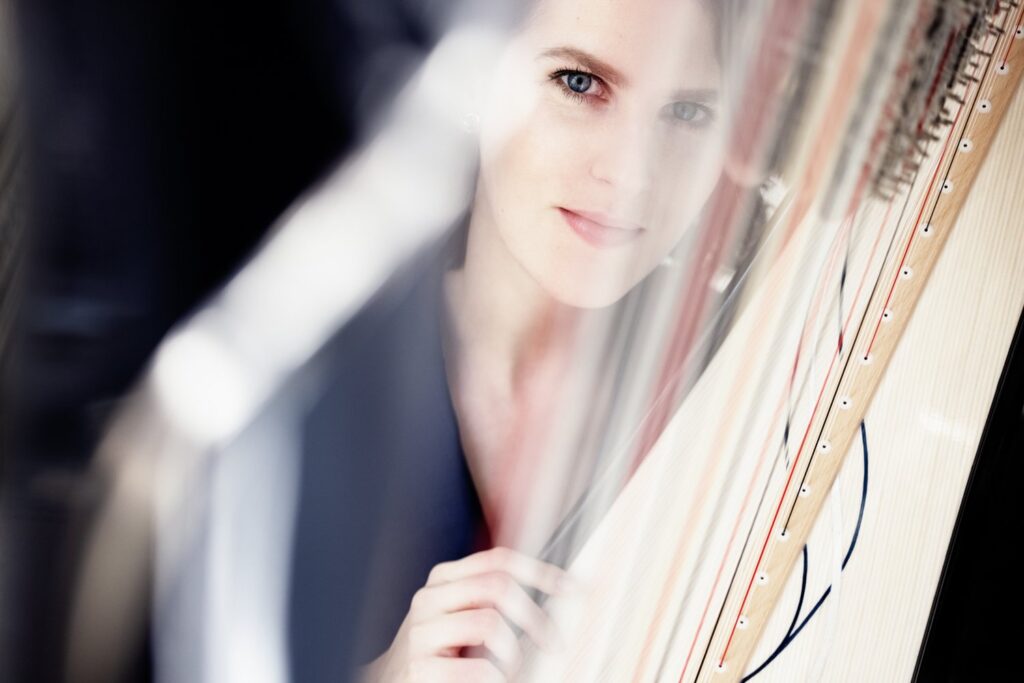
Let's talk about your recital, which you will present at the festival in Slovakia, Allegretto Žilina. It seems that you have prepared a special program. There will be classical music from past centuries, but also contemporary music. How do these "jumps" in centuries work with contemporary music?
I think contemporary music should not live a secluded life! On the contrary, I think if we only present contemporary music in specialised concerts and festivals, people are not getting exposed to it enough and are just getting estranged. I am not saying you have to love all of contemporary music, but it is the same with all kinds of music, just because you like Bach, doesn’t mean you also like Händel.
But because it is the music of our time, we should not ignore it (and then maybe even complain that it is terrible, although we don’t have any clue about it). It is so versatile, there are so many styles, so I am sure there is something there for everybody, but you have to be exposed to it first.
And by including contemporary pieces with other styles, you can pout the music into a dialogue.
I believe programming a concert is like being a curator, it is where the performance already begins before you have played a note. The program in itself should already be a work of art, not just randomly stacked pieces.
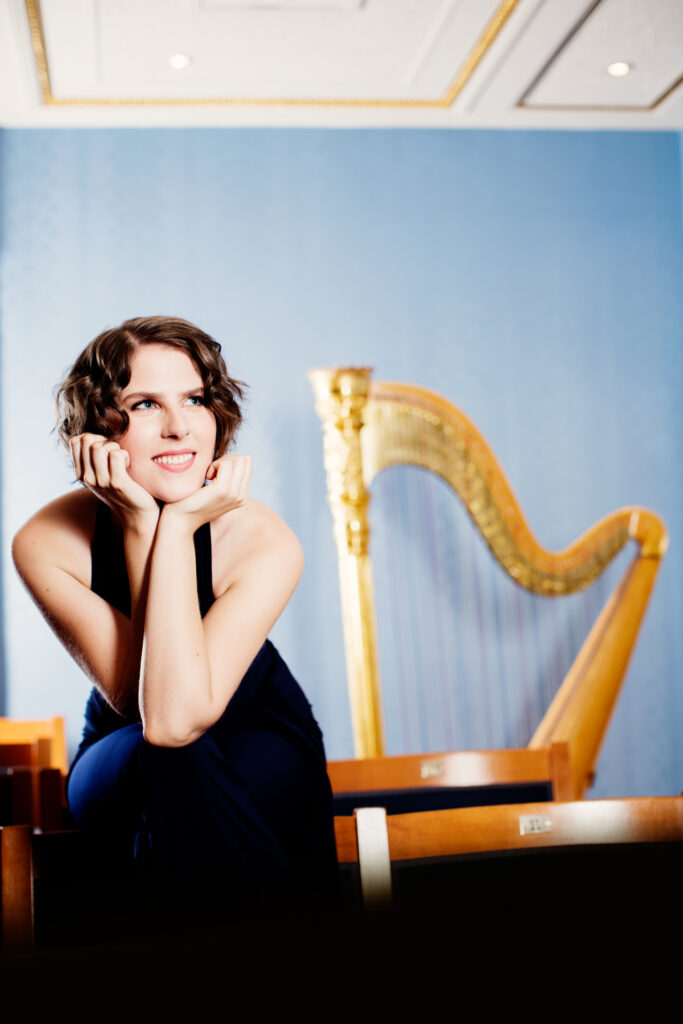
In Žilina, you will also present compositions that you have arranged yourself. Is it difficult to include all the colors and harmonic processes for the harp? Or do you think that the harp is the instrument that can handle it all? And possibly, add something extra...
Yes, I think some transcriptions can really show all the colours the harp is capable of! I think if you know “this piece is originally for orchestra” and then you hear it performed on a harp and you don’t miss anything, you understand the power of this instrument!
But I am always very careful with transcriptions, I only play them if I believe they will sound good on harp (not just because people will know the piece), so the sound of the harp needs to contribute something to the composition, and there always needs to be connection to the harp that makes sense: the “Adagietto” of course has a very prominent harp part, and the text in Schubert’s “Nachtstück” features a harp.
Your programme will start with a Rondo taken from Rossini opera, composed by Robert-Nicolas-Charles Bochsa - a French harpist and composer. So opera after all! But in a different light, right? Does the audience like these brisk, witty melodies? How does the harp change them?
Yes! Opera fantasies are a big part of the harp’s heritage and they can be fun! Also they show us which operas were famous in their days (sometimes it is very different to what is still performed today!); as people had no way of recording back then, the only way was to compose fantasies or potpourries of the lates favourite opera so people could hear them in different settings, not just the opera houses or even play them themselves.
What I particularly like about this piece: first of all it is one of my favourite operas, but more importantly, as you say, it is a humorous piece! So already the first piece plays with your expectations! – there is nothing kitschy or romantic.
So maybe in this case it is not about the harp changing the melodies, but about the audience changing their perception.
You will continue with Schubert's Nachtstück. He was an exceptional songwriter who was also a great musical psychologist. Probably no one in history has been able to set words to music like he did. How can these psychological analyses be interpreted on the harp?
Schubert is one of my favourite composers! I am always angry with him he never wrote for harp! Although during his lifetime the harp was heard on every corner in Vienna, performed by buskers, very often Bohemian harpists. And these musicians were such a prominent sight on the streets of Vienna that they turned into a character archetype and writers like Nestroy or Raimund included them in their plays.
I agree, Schubert’s songs are so dense and complex, full of genius ideas. How he set music to poetry is almost incomparable. I mentioned before that in the poem by Mayrhofer, there is a harpist. And maybe also this idea of the harp being an instrument of minstrels, accompanying song for centuries resonated with me as well.
Because Schubert composed for Hammerklavier, his musical language works very well on harp, as the sound of Hammerklavier and harp is actually very close in certain ways.
As I have looked at the program I thought to myself: Do you first make the audience happy and then make them cry?
Maybe! I want my programs to be full of contrasts, I want to lull people into believing they know what is going to happen, and then suddenly something totally different comes next.
All the pieces are stories on their own, but also the big arc of the program should tell a story.
The program will also feature the work of the Welsh harpist Elias Parish Alvars. We will even hear two opuses by this author. What makes his work special? Is it known only in the world of harpists?
He is one of the examples of the problems the harp has to face nowadays. In his lifetime Parish Alvars was a celebrated musician throughout! He was the royal harpist in Vienna, he worked with all the famous musicians, Hector Berlioz called him “the Liszt of the Harp”, and yet today, no one knows him outside of the harp world!
To understand his significance: how he composed, how he used the – then newly invented- double-action pedal harp was revolutionary! Unheard of! What we hear now when we hear this music as typical 19th century style, but for people back then it was outrageous
You have included a composition for the recital by a composer who is known for his film music and also as a conductor. Lucio Bruno-Videla wrote the Fantasy on Themes by Johann Strauss, which will be performed in the premiere. Is the composition difficult to play? Because Strauss seems easy to listen to, but certainly not in terms of interpretation style and maintaining many nuances...
I really liked his idea for the piece when he approached me about it: as he is also a researcher and musicologist, he collected unused themes of drafts by Strauß and turned them into this Fantasie.
One thing that is very close to the harp is dance music; harp is also part of the Austrian traditional music ensembles, so accompaniment of dances is what harpists are used to do. Of course in this piece, you have to do it all, not just accompanying.
You are absolutely right the interpretation style! Maybe this is the specialty of Viennese music? It doesn’t matter if it is Mozart or Strauß, it sounds simple enough, but you have to really understand the nuances to make it interesting. The trickiest part was certainly the “Viennese 1st beat” of the waltz. But again, this proves music is also about experiences you make in life: because I can dance Viennese waltz (even “Linkswalzer”), I know where it comes from (you need more time to do the turn), so for me it is not abstract.
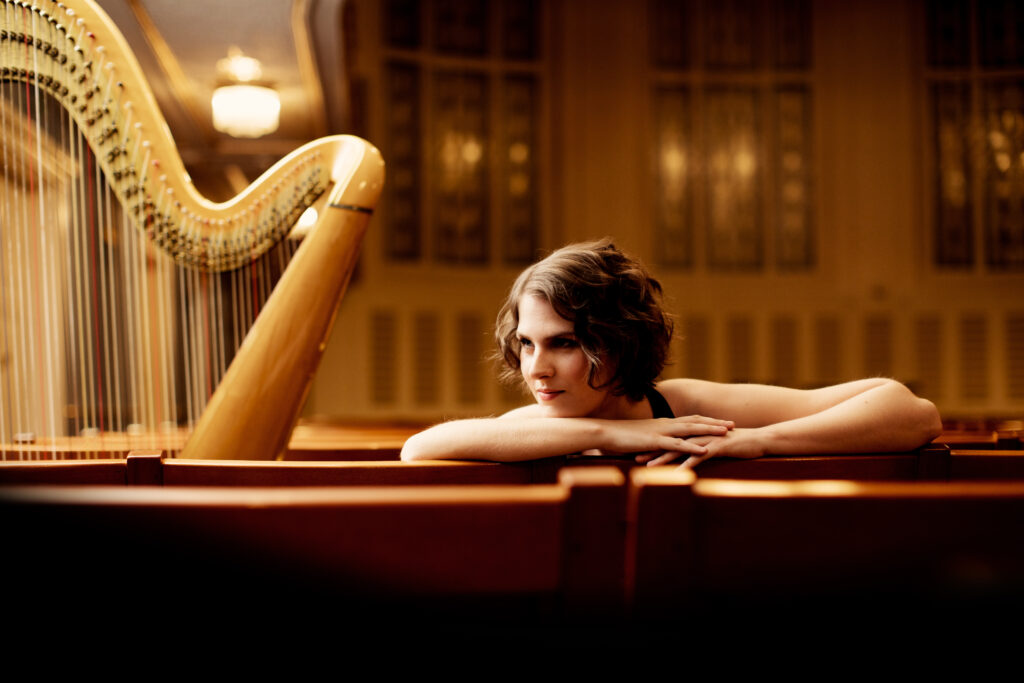
One of the biggest hits of the concert will probably be the famous Adagietto from Symphony No. 5 by Gustav Mahler. There is probably no person in the world who would not love this symphony (and especially this movement). Do you? In short, why did you choose the Adagietto, a declaration of love?
Yes! It is one of my favourite pieces, and I love Mahler in general.
Because people usually know the piece, they understand how amazing it is that I only the harp can bring it to life without missing anything!
And in this case I think the reduction to the harp brings out the genius and structure even more, because it becomes so “dense” you get to hear nuances you might miss in the big instrumentation.
How else could you continue the dramaturgy after Mahler's work than through an Alpine setting. You chose the Austrian composer and harpist Monika Stadler. Is it a combination of tradition and the new? What is this piece about?
Exactly! This is about the old issue of balancing tradition and present.
Monika Stadler plays with the idea of the Austrian harp tradition and takes elements of it into the 21st century. She is also a Jazz harpist, so there will also a few elements of jazz (because even that is possible on the harp!) -another moment of surprise to discover jazz on the harp?
There are two contrasting parts of the piece: “Mountain Morning”, you are energized and start your ascend of the mountain. You might encounter a thunderstorm. A very rhythmical piece.
“The summit’s tranquility” you have reached the top of the mountain and you are exhausted but happy, all of the landscape is beneath you, you can see clearly. A very pensive, almost free piece.
I get the impression that you want to bring a piece of romance, love, nature, but also today's view of life that surrounds us to Žilina. Are we living in a time when we need to hear and see something beautiful and pure? What is the message of your recital?
I believe so. It depends on the specific program: sometimes I want people to think about the message of the program. I always want to inspire them, and I always try to make my concerts a moment of escapism. I want people to forget their daily lives and the current situation of the world just for the duration of the concert. Art always has a message, but maybe the message sometimes is about being in the moment – and the rest can be up for interpretation: depending on your own personality you might find a different thing for yourself in the program than your neighbour. And I think that is beautiful, because I am not here to tell you how to see a certain piece, I want you to experience it for yourself.
In this specific case, my idea for this program is to present a (different) musical portrait of my hometown Vienna. All the composers presented in the program lived, or are still living, in Vienna.
So maybe in a way this idea goes back to my idea about the harp: don’t just accept what you have always known, look around the corner, discover something new because otherwise you might miss something!
Zuzana Vachová
Photos: www.elisabethplank.com - Julia Wesely
| Vyberáme z nášho kalendára
Viac z kalendára10.
októbra
Hudba
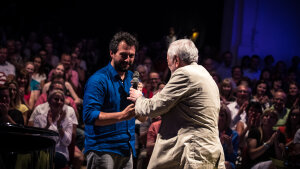
LASICA PÍŠE ČEKOVSKÉMU
10.
októbra
Hudba

LASICA PÍŠE ČEKOVSKÉMU
10.
októbra
Balet
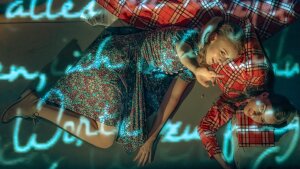
Ondrej Šoth, Zuzana Mistríková: DENNÍK ANNY FRANKOVEJ
10.
októbra
Činohra
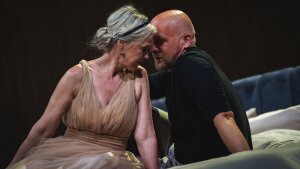
Marina Carr: DIEVČA NA OLTÁRI
11.
októbra
Hudba

LASICA PÍŠE ČEKOVSKÉMU
11.
októbra
Opera
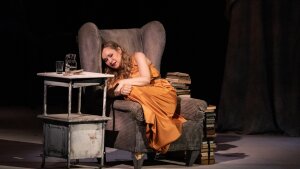
Jules Massenet: WERTHER
12.
októbra
Opera
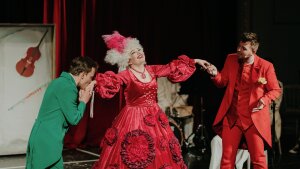
ORCHESTRÍČEK
12.
októbra
Činohra
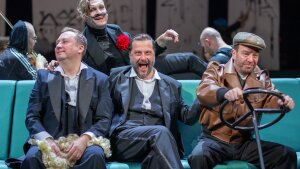
Bertolt Brecht: PÁN PUNTILA A JEHO SLUHA MATTI
14.
októbra
Opera
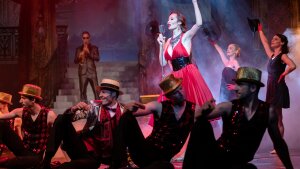
Emmerich Kálmán: VOJVODKYŇA Z CHICAGA
15.
októbra
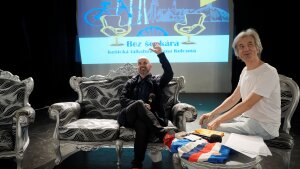
Košická Talkshow Milana Kolcuna
| Hudba, výtvarné a tanečné umenie
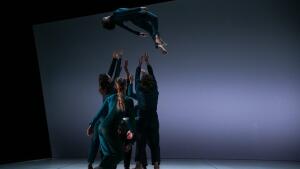
Od Lucindy Childs po meme kultúru: Bratislava v pohybe ukáže tváre dnešného tanca
Medzinárodný festival sú...
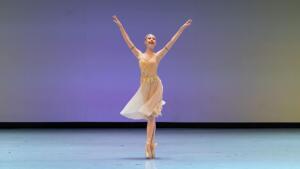
TKEJ: oslava umenia pohybu a formovanie pedagogickej tradície
Záverečné predstavenie...
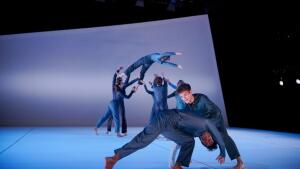
Ocenená tanečná inscenácia odštartuje 29. ročník Bratislava v pohybe
Medzinárodný festival...
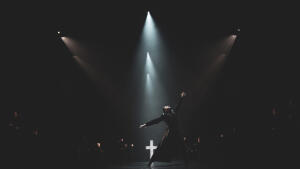
Svetoznámy Győrsky balet opäť v Divadle Nová scéna
Presne po roku prichád...
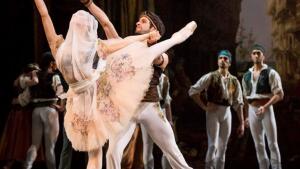
Hviezdy svetového baletu na javisku Národného divadla Košice
Výnimočný večer, počas...
| Divadlo a film
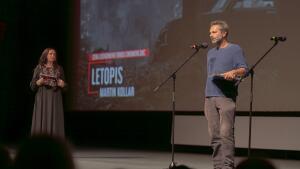
Cinematik 2025 spoznal víťazov jubilejného ročníka
Medzinárodný filmový f...
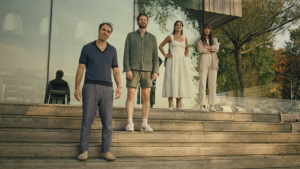
Snímka Otvorené vzťahy na Cinematiku a v kinách
Takmer romantická komé...
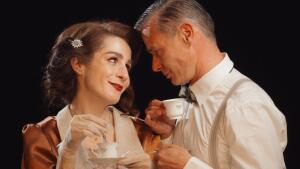
Sezóna v košickom divadle Thália s mottom: Ale občas počujem čas
Premiérou kabaretného pre...
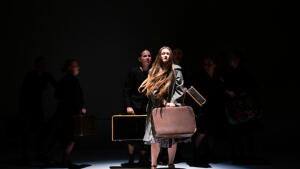
Inscenácia, ktorá pozýva k objatiu
Ako by vyzerala vojna,...
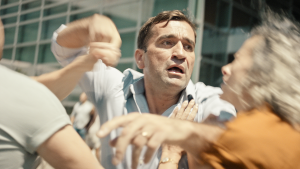
Film Otec môže zachrániť ľudské životy
Po uvedení na prestížn...
